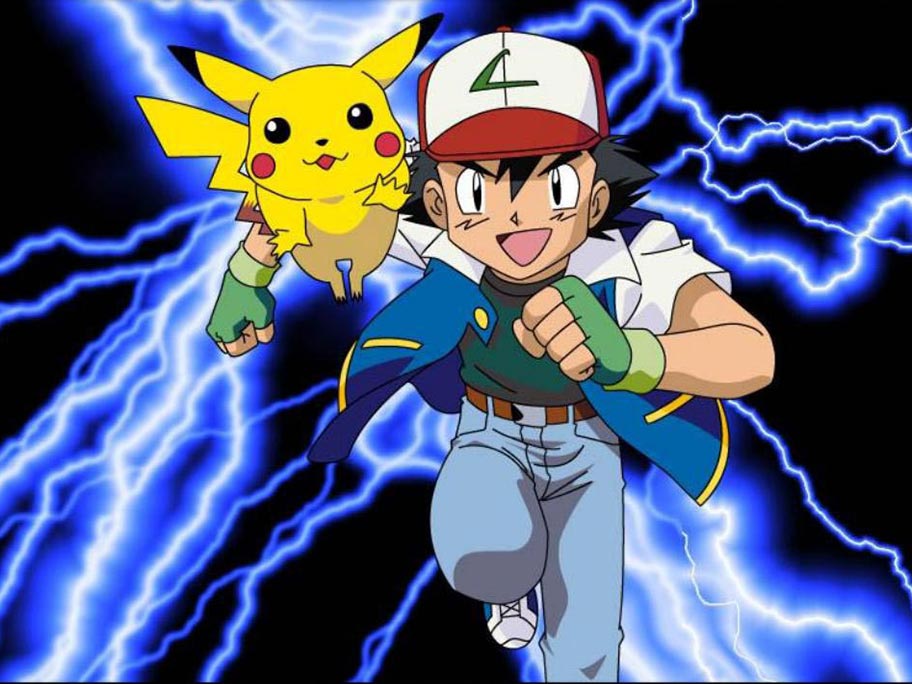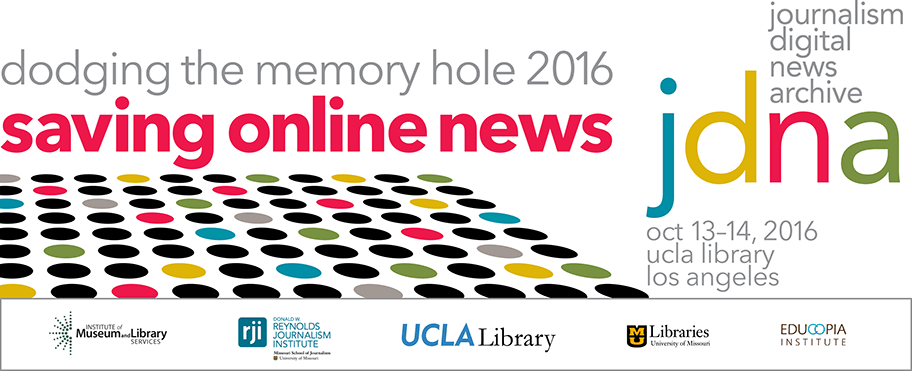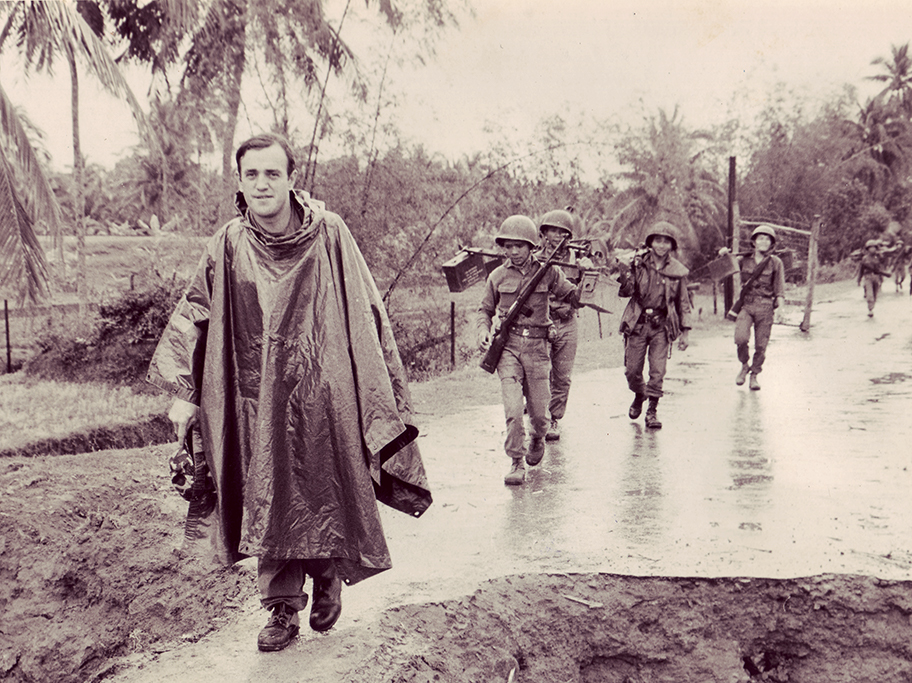
Tag: Edward McCain
Gotta catch ’em all: Archiving digital content such as social media should include linked objects
In the digital media world, there’s no guarantee that material that appears one minute will be there the next. Take, for example, Twitter posts of Anthony Scaramucci, who began deleting old tweets after being named White House communications director. Many — but not all — of the former presidential aide’s postings had already been identified … Continued
White paper: Two days dedicated to Dodging the Memory Hole
This white paper summarizes the Dodging the Memory Hole 2016: Saving online news event, with overviews of the panels and presentations, and projects produced by groups at the conference as well as student scholarship recipients. On Oct. 13–14, 2016, University of Missouri Libraries, in collaboration with the Donald W. Reynolds Journalism Institute, UCLA Library and … Continued
Panel: The future of the past: Modernizing The New York Times archive
Scroll to view transcript EVAN SANDHAUS: [00:08] Thank you for bearing with me while we get the technical things ironed out. I’m Evan Sandhaus, and I am here with my team today to talk about some work we’ve been doing with migrating The New York Times archives. A little bit later, once we say our … Continued
Edward McCain and Ginny Steele: Welcome
Scroll to view transcript EDWARD MCCAIN: [00:07] Welcome to the fourth Dodging the Memory Hole event. It's part of our outreach effort from the Journalism Digital News Archive at the University of Missouri. It's great to have you here. We're going to focus, today, on saving online news. We've talked about "born digital" for a while, but I think the … Continued
Edward McCain: Goals of the conference
Video of Edward McCain discussing the goals of Dodging the Memory Hole 2016: Saving Online News.
Digital preservation: 7 steps to get started
There are a number of practical steps publishers at news agencies can do to lay the groundwork for preserving our historical record. While this is not a complete set of instructions for digital preservation, it will prepare the way for more advanced efforts to follow. 1. Reach out One of the best first steps to … Continued
Monetization of news
In the face of decreasing revenues and increasing costs, news agencies everywhere are exploring creative methods of extracting more funding from their products. Some methods are more suitable to larger organizations and others to smaller ones; each one has drawbacks, and for many, they are a gamble. However, some of these gambles have become viable … Continued
War stories: How Arnett’s efforts to save Saigon articles inspire today’s preservation efforts
I’m no hero-worshiper, far from it. Yet there are people who I admire, people who have certain principles along with the courage of their convictions. A number of such commendable individuals joined us at the Dodging the Memory Hole: Saving Online News forum last month at UCLA. Among them was journalist Peter Arnett, who won … Continued
14 graduate students receive scholarships to attend digital news preservation event at UCLA
Fourteen graduate students from academic institutions across the U.S. have been selected to receive funding assistance to attend a conference next month where they will take active steps toward preserving digital news. Each student has received a travel scholarship to help cover expenses to attend the Dodging the Memory Hole: Saving Online News forum Oct. … Continued
Learning to JAM in 5 steps: New initiative reminds journalism students to archive their digital work
In the early days of computing, we used a phrase, “save early, save often.” Today’s digital content creators have more opportunities and more ways to save, but often forget this critical step.
To keep content from being lost forever, our students and faculty need to learn best practices.
I’m proud that our librarians, Ed McCain and Dorothy Carner, are launching an easy set of steps for digital storage. JAM — Journalism Archives Management — will set students and faculty on a path to preserving content long after it has been created.
— Linda Kraxberger, Associate Dean for Undergraduate Studies, Missouri School of Journalism







